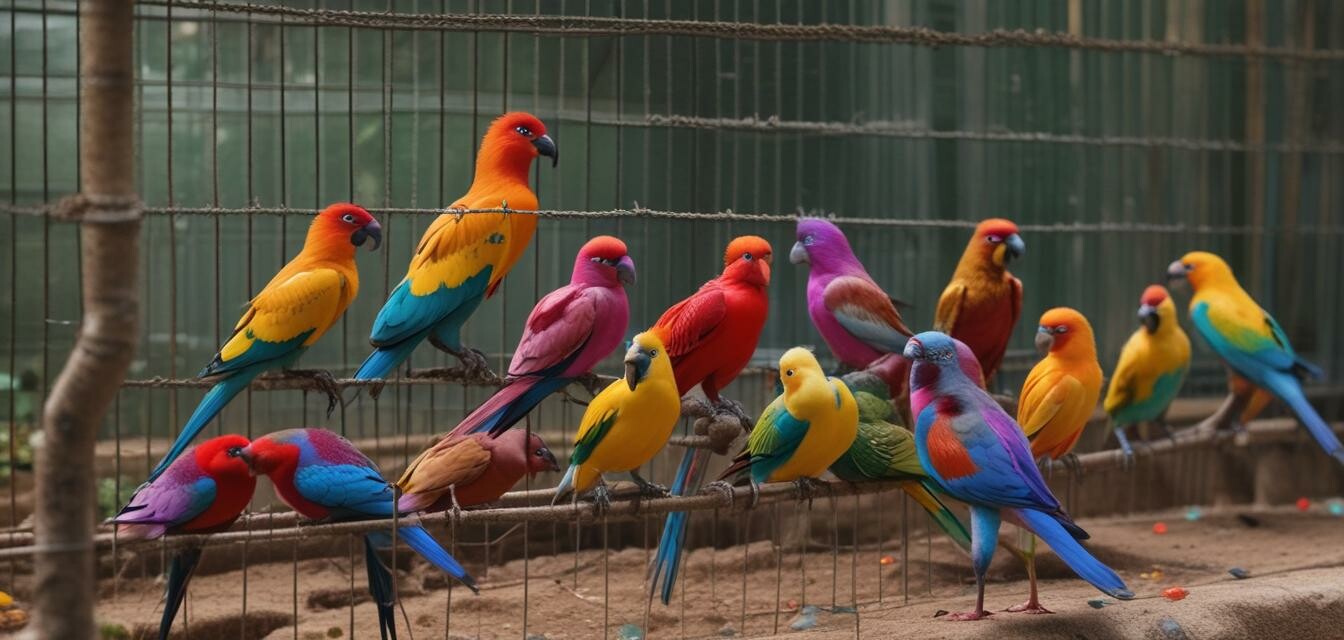
Addressing common behavioral issues in cage birds
Key Takeaways
- Behavioral issues in cage birds can arise from various factors including environment and stress.
- Understanding the root cause of these behaviors is crucial for effective solutions.
- Providing mental stimulation and appropriate care can significantly improve your bird's behavior.
- Products such as toys, perches, and environmental enrichments can play a vital role in behavior management.
- Regular interaction with your bird helps foster a positive relationship, leading to better resolutions of behavioral problems.
Caring for your feathered companions goes beyond providing food and a cage. Just like any pet, cage birds have their unique personalities and can display a range of behavioral issues. Understanding these behaviors is essential for creating a harmonious living environment for both you and your bird. In this article, we will explore common behavioral issues in cage birds and how to address them effectively.
Understanding behavioral issues in cage birds
Birds are social animals, and their behavior can often be a reflection of their environment, social interactions, and overall well-being. Behavioral issues may arise from various factors including:
- Stressful living conditions
- Insufficient social interaction
- Lack of mental stimulation
- Health issues
Recognizing these triggers is the first step in addressing behavioral issues. Let's discuss some common behaviors and their potential causes.
Common behavioral issues
| Behavior | Possible Causes | Recommended Solutions |
|---|---|---|
| Excessive screaming | Attention-seeking, boredom, health issues | Increase interaction, provide toys, secure health check-up |
| Plucking feathers | Stress, illness, environmental factors | Consult avian vet, enrich environment, ensure proper diet |
| Aggression towards owner | Lack of trust, fear, stress from environment | Engage in gradual bonding activities, use positive reinforcement |
| Territorial behavior | Instinctual behavior, lack of space | Provide more space, multiple perches and toys |
Addressing each behavioral issue
Let's delve deeper into how to tackle some of these common behavioral issues:
Excessive screaming
If your bird tends to scream excessively, it might be a way to seek attention or express boredom. Here are some strategies:
- Increase daily interactions—spend more time with your bird.
- Introduce a variety of toys to keep them engaged.
- Ensure your bird is healthy with regular vet check-ups.
Feather plucking
Feather plucking can indicate stress or health problems, making it vital to act quickly:
- Consult your avian veterinarian to rule out health issues.
- Create a more enriched environment—add toys and perches.
- Make sure they are on a proper diet tailored to their needs.
Aggressive behavior
Addressing aggression comes down to earning your bird’s trust:
- Engage in slow, gentle bonding exercises.
- Use positive reinforcement by rewarding calm behavior.
- Maintain a consistent routine to give your bird a sense of security.
Managing territorial behavior
If your bird displays territorial tendencies:
- Ensure they have enough space to feel secure.
- Provide multiple perches and vary their location.
- Monitor social interactions and reduce stressors.
Helpful products for managing behavioral issues
Investing in the right products is vital for promoting your bird's happiness and well-being. Here are some product categories that can assist with behavioral issues:
- Bird toys - Keeps your birds mentally stimulated.
- Bird perches - Comfortable structures that provide variety.
- Habitat enhancements - Create an engaging living space.
- Bird care essentials - Health maintenance products.
Conclusion
Addressing common behavioral issues in cage birds requires patience, understanding, and a willingness to adapt. Regular interactions, environmental enrichments, and the right products can go a long way in building a healthy, happy relationship with your feathered friends. For more insights into the health and care of cage birds, check out our other articles in the Cage Bird Health and Care section. Remember, a well-loved bird is a happy bird!